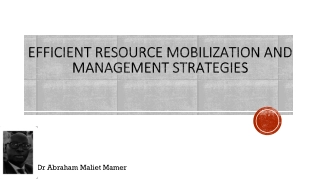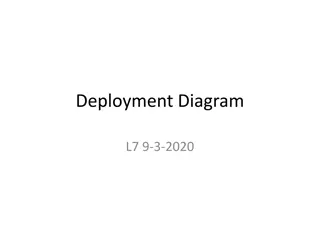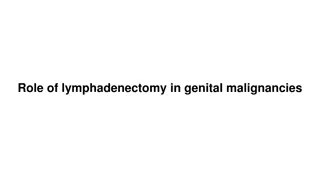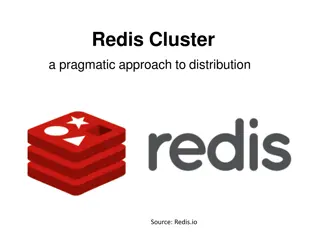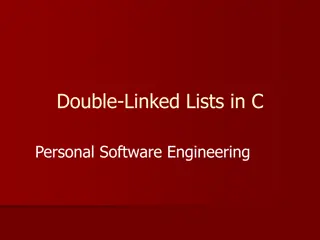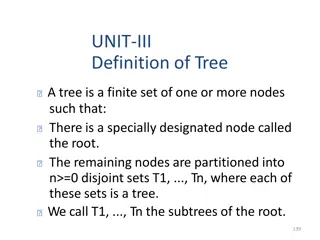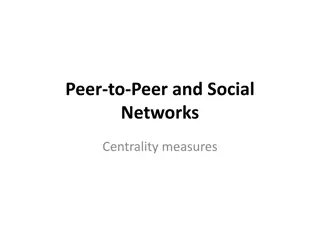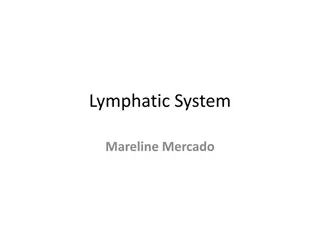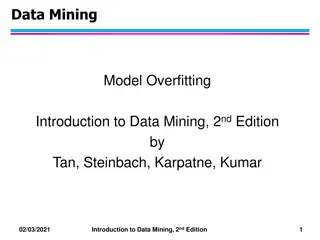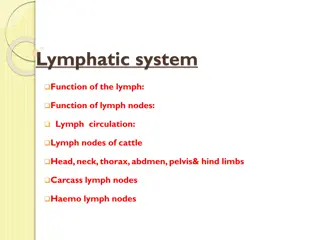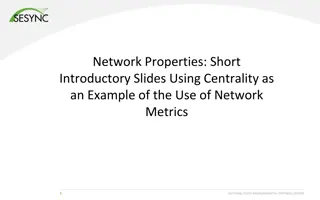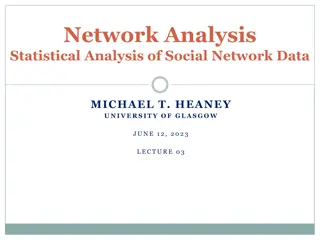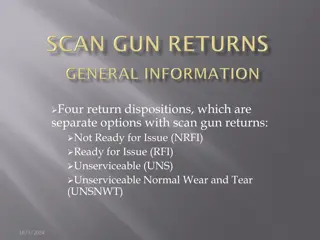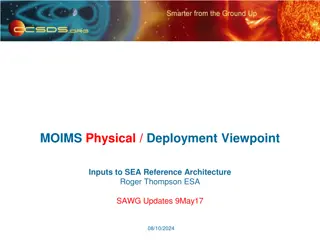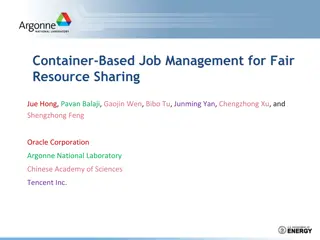Managing Network Operations Model Resource Nodes
"NPRR 1099 focuses on DGR modeling, resource retirement, and POI changes in the ERCOT network operations. It differs from NPRR 1017, emphasizing managing resource nodes effectively for transmission and distribution. Explore examples illustrating the impact of NPRR implementations on network infrastructure."
Download Presentation

Please find below an Image/Link to download the presentation.
The content on the website is provided AS IS for your information and personal use only. It may not be sold, licensed, or shared on other websites without obtaining consent from the author.If you encounter any issues during the download, it is possible that the publisher has removed the file from their server.
You are allowed to download the files provided on this website for personal or commercial use, subject to the condition that they are used lawfully. All files are the property of their respective owners.
The content on the website is provided AS IS for your information and personal use only. It may not be sold, licensed, or shared on other websites without obtaining consent from the author.
E N D
Presentation Transcript
Introducing Shared Lives Purpose of Shared Lives: Worcestershire Shared Lives Scheme provides individuals with care and support needs the opportunity to be part of the family and community of a Shared Lives provider, who in turn will provide friendship and appropriate support and care. Who is in the team: Shared Lives Registered Manager Jenny Parker Team Leader Catherine Tyler Shared Lives Workers Lin Hall, Natasha Hughes, Kristina Crummy, Nicole Knibbs, Nigel Blackshaw, Julie Wiggins, Kate Frayne, Sally Green Clerical and Administration Jenny Eskdale and Sandy Rimell (Job Share)
Introduction to the scheme Shared Lives is a care and support service for people aged 18 and over. It s an alternative to Supported Living or Residential Care. Shared Lives providers can support up to 3 individuals with care and support needs. Many Shared Lives providers love the flexibility that the role offers including being self- employed and working from home.
Expectations To be part of the Shared Lives Provider s family or household. To be part of the community. To have opportunities to develop and use new skills. To have privacy and dignity. To be treated with consideration and respect. To have choices and make their own decisions. To lead the kind of life they want and achieve the things that are important to them.
The process to become a provider Prospective Providers go through assessment, training and panel approval. They are allocated a Shared Lives worker to support them through this process. The Portfolio consists of: Application form Day in the life, personal profile and community network map Personal and professional references DBS check Occupational Health Check Permission from a mortgage lender or landlord Completion of home risk assessments WCC Care Certificate training or equivalent Completion of the Shared Lives Scheme induction A comprehensive assessment document is then completed by a Shared Lives worker and is submitted for examination by an independent WCC panel
Standards Care Quality Commission [CQC] - The Shared Lives scheme is registered with CQC. This means the scheme must evidence our compliance with the regulations and key lines of enquiry - Caring, Responsive, Effective, Safe and Well-Led Handbook - it is important that providers are given as much information as possible about the Scheme and their role so that they feel comfortable and confident when supporting individuals in their home. The handbook covers policies, procedures, contractual obligations and also gives information about: The roles and responsibilities of a Shared Lives Provider The roles and responsibilities of a Shared Lives worker Record keeping requirements Training and development requirements and opportunities
Shared Lives Plus Shared Lives Plus is a national advisory body for Shared Lives schemes, providers and workers. Shared Lives Plus have a UK membership of more than 6,000 Shared Lives providers and 150 Shared Lives schemes It lobbies the Government about legislation and promoting the service. Shared Lives Plus is funded by its membership, and several project grants.
The role of the scheme Allocated worker Support and monitoring Ensure compliance Monday to Friday support EDT evenings, weekends and Bank Holidays
Referrals Initial assessment completed by social worker. Referral to the scheme. Information collected and passed to potential providers. If, following receipt of information about each other, both the provider and the individual wish to proceed, the matching process goes ahead [meet and greet visits]. Agreed move in date Assessment information and care plan passed to provider 28 days after moving in, if the placement is to continue long term, a Placement agreement will be completed to agree the placement. The decision to accept the referral is the Shared Lives provider s and the Individual s. Shared Lives providers need to be aware of this as there is no guarantee of placements.
Contract A contract is sent out after approval at Panel, which when returned enables the provider to be set up to receive fee payments. Notice periods - 3 months for providers and 28 days for individuals placements. Informing the scheme when away from home. Informing the scheme of any near misses, accidents or incidents.
Fees Elements of the fee care and support, rent, household contribution. 1. Care and support banding system - A profile tool is completed by the involved Social Worker. The profiling tool is used to identify and agree the support that will be required and in turn the fee that the Shared Lives provider should receive. 2024/25 306 p/w Level 1 367 p/w Level 2 430 p/w Level 3 557 p/w Level 4 80.34 p/n or 562.38 p/w Replacement care
Care and Support Payments Following agreement of the fee, a purchase order is set up by the allocated social worker. Login details for the Adult Portal are given to the Shared Lives Provider, here they can access a remittance ahead of payment. The schedule allows for 13 payments every year.
Fees continued 2. Rent 3. Household contribution How rent is calculated Each individual has a licence agreement which states the rent to be paid to the provider. The rent is calculated using the local housing allowance calculator . The individual sends the licence agreement to housing benefit as proof of rent and move in date. Household contribution is also recorded in the licence agreement. It is a contribution towards food and utilities from the individual to the provider. Reviewed each April by the scheme based on data from government website. Paid directly by the individual.
Self- employment Public Liability Shared Lives providers must have Public Liability Insurance. The policies should cover 10 million Public Liability arising from supporting an individual with care and support needs. The insurance provider must fully understand Shared Lives to ensure correct cover. Insurances Valid car insurance to include business class, valid gas service certificate, valid and relevant house insurance. Tax Shared Lives providers are responsible for their own tax. Shared Lives falls under the simplified tax arrangements. HMRC provide information on their website.
Recording Financial Petty Cash Transactions Record, Record Of Car Mileage, statement of income, Household Contribution record, Rent record. Medication Medication Administration Record [MAR], Medication received into the home, Medication returned to the Pharmacy, Simple Medications (household remedies), Body maps Appointee If required, a financial appointee will support the individual. We use CHARMS for digital record keeping and secure information sharing. You will receive a login and training to support you with this.
Support and Monitoring Visits Provider visit and Independent Individual visit [April- June] Care [Jan- March] Carer Review [July Sept] Environment [Oct- Dec]
Person Centred Care Planning Person Centred Care Planning Shared Lives Individual Plans Individual Risk assessments Manual Handling Risk assessments Advocacy Mental capacity Confidentiality
Working with others Families Professionals- Social workers, doctors, Nurses, occupational therapists, day service staff, physiotherapists, psychologists, psychiatrists, reviewing officers, speech and language therapists. Other Shared Lives Providers - provider forum meetings, supporting with breaks Training team
Ongoing Training Regular mandatory updates- Adult Safeguarding, Fire, First Aid, Medication- every three years Additional requirements moving and handling (diligent) training, achieving positive outcomes for people with autism, epilepsy, diabetes, eating and drinking (SALT), infection control We can also resource additional training that you request if relevant to your role
Provider Breaks Support Carers Replacement care [carer to carer] Scheme support
Useful contact numbers Shared Lives Worcestershire County Council Shared Lives (People Directorate) G3, County Hall, Spetchley Road, Worcester, Worcestershire WR5 2NP T: 01905 765622 E: sharedlivesadmin@worcestershire.gov.uk Shared Lives Plus Shared Lives Plus runs a helpline designed to assist members. All of them are FREE to Shared Lives Plus members. Shared Lives Plus Office 0151 227 3499 Emergency Duty Team The EDT can be contacted on 01905 768020 or fax 01905 768023. [Out of hours] Care Quality Commission [CQC] Telephone: 03000 616161


